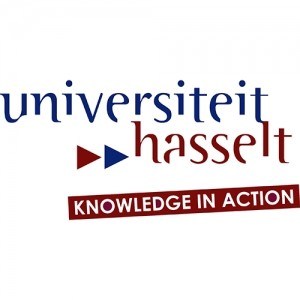Photos of university / #universityofleeds
The MSc Sustainability (Transport) at the University of Leeds is a comprehensive postgraduate degree designed to equip students with the knowledge and skills necessary to address the complex challenges associated with sustainable transportation systems. This programme integrates core concepts from environmental science, urban planning, policy development, and engineering to prepare graduates for careers in academia, industry, government, and consultancy roles focused on creating sustainable transport solutions. Throughout the course, students will explore the environmental, social, and economic impacts of different transport modes and develop strategies to mitigate negative effects while promoting efficiency and accessibility. The programme covers a broad range of topics including transport planning, environmental assessment, policy analysis, renewable energy integration in transport, and innovative technological developments. It emphasizes a multidisciplinary approach, encouraging students to analyze real-world problems and propose effective, evidence-based solutions. The MSc programme combines theoretical coursework with practical projects, often involving collaboration with local authorities, transport agencies, and industry partners, providing valuable industry insights and networking opportunities. Delivered by experienced academic staff with expertise in sustainability and transport, the programme also offers optional modules tailored to specific interests such as urban mobility, freight logistics, and transport innovation. Students benefit from access to state-of-the-art facilities and research resources at Leeds University, fostering an environment of pioneering research and development. Graduates of this programme will be well-positioned to influence policy, implement sustainable practices within transport industries, and contribute to the development of environmentally responsible transport infrastructure worldwide. The MSc Sustainability (Transport) exemplifies Leeds University's commitment to fostering environmentally conscious professionals capable of driving sustainable change in transport sectors globally.
The MSc Sustainability (Transport) programme at the University of Leeds is designed to equip students with a comprehensive understanding of sustainable transportation systems and the complexities involved in transforming current transport practices. This advanced degree combines theory and practical skills, preparing graduates to address the critical environmental, social, and economic challenges associated with transportation in a rapidly changing world. Throughout the course, students will explore key topics such as the principles of sustainable transport, environmental impacts of transport systems, policy development, urban and regional planning, and innovative technologies aimed at reducing carbon emissions and enhancing mobility. Emphasis is placed on integrating interdisciplinary perspectives, including engineering, environmental science, policy analysis, and social sciences, to develop well-rounded solutions for sustainable transportation issues. The programme features a mix of core modules, optional subjects, and project work, allowing students to tailor their learning to specific interests within the field. Students will engage in case studies, data analysis, and real-world projects, often in collaboration with industry partners and local authorities, to gain practical experience and foster professional skills. Assessment methods include essays, presentations, examinations, and a dissertation, which involves independent research on a relevant topic within sustainable transport. The programme prepares graduates for careers in transportation planning, environmental consultancy, policy advisory roles, and research within governmental agencies, private sector companies, and non-governmental organizations. By combining academic rigor with applied learning, the MSc Sustainability (Transport) at Leeds aims to produce forward-thinking professionals capable of leading sustainable transformation in the transport sector on a global scale.
The MSc in Sustainability (Transport) at the University of Leeds requires applicants to hold a Bachelor’s degree with a minimum classification of 2:2 (or equivalent) in a relevant subject such as environmental science, engineering, geography, urban planning, or a related field. Consideration may also be given to applicants with substantial professional experience in the transport or sustainability sectors. Applicants are expected to demonstrate a good understanding of sustainability principles and transport systems, along with analytical and research skills. Proficiency in English language is mandatory; non-native speakers must provide evidence of IELTS score of at least 6.5 overall with a minimum of 6.0 in each component, or equivalent recognized English language qualification. The program does not specify specific prerequisite coursework, but a foundational knowledge of transport systems, environmental impact assessment, and sustainability concepts is advantageous. Applications must include a personal statement outlining motivation and relevant experience, and two academic or professional references. Work experience is not a strict requirement but may strengthen an application. The program emphasizes interdisciplinary learning, combining core modules in transport and sustainability with elective options, encouraging integration of technical knowledge and policy analysis. All applicants are encouraged to submit a CV and any relevant project work or publications. Entries are assessed holistically, considering academic achievement, relevant experience, motivation, and potential contribution to the program. The university may conduct interviews or request additional information in borderline cases. There is no specific age limit for applicants. The program aims to prepare graduates for careers in sustainable transport planning, policy development, consultancy, and research. It is designed to build competencies in analyzing transport-related sustainability challenges and developing innovative solutions, aligning with global efforts to promote sustainable urban mobility and reduce environmental impacts.
The University of Leeds offers comprehensive funding options for students enrolled in the Sustainability (Transport) programme, designed to support both domestic and international students throughout their studies. Prospective students can explore a variety of scholarships, bursaries, and financial aid schemes tailored to their specific circumstances. The university’s scholarship database lists numerous awards that are either merit-based, need-based, or targeted at particular demographics, such as international students or those studying full-time or part-time. For example, the Leeds Excellence Scholarships provide funding for high-achieving undergraduate students, while the International Undergraduate Scholarships support international applicants with outstanding academic backgrounds. Additionally, the university participates in governmental loan schemes, such as the UK Student Loans, which help domestic students finance their higher education expenses by offering manageable repayment terms after graduation.
Furthermore, students are encouraged to seek external funding sources, including industry-sponsored bursaries, regional grants, and charitable foundations that support students pursuing sustainability or transport-related qualifications. The university’s Careers Service also provides guidance on part-time work opportunities, which can supplement student income while gaining relevant experience in sustainable transport. For students from European Union countries, financial support options may include local government grants or stipends available through their home countries; however, the impact of recent legislative changes on these options should be checked on official channels. International students from outside the EU are advised to consider the various international scholarships offered directly by the university or through partner organizations aimed at fostering global sustainability leadership.
Tuition fee information is published annually and varies depending on the student’s domicile and course specifics. For UK and EU students, the current tuition fee for full-time undergraduate programmes is subject to government regulations and university announcements. International students generally pay higher fees, which are detailed on the university’s fee schedule. Students can also explore payment plans that spread tuition costs across multiple installments. Additionally, the university provides financial planning resources, workshops, and one-on-one consultations to help students budget effectively during their studies. In summary, the funding landscape for the Sustainability (Transport) programme at the University of Leeds is robust, combining internal and external sources, and is designed to enable a diverse range of students to access high-quality education in sustainable transport and related disciplines.
The MSc in Sustainability (Transport) at the University of Leeds is a specialised postgraduate programme designed to equip students with an in-depth understanding of sustainable transportation systems and innovations. The course focuses on the critical environmental, economic, and social challenges faced by the transport sector today and explores practical solutions to mitigate negative impacts. Students will engage with a multidisciplinary curriculum that covers topics such as sustainable mobility, transportation planning, environmental impact assessment, urban and regional transport policy, and the integration of new technologies like electric vehicles and intelligent transport systems.
Throughout the programme, students will benefit from a combination of lectures, seminars, practical case studies, and research projects, enabling them to develop analytical skills and a strategic perspective essential for careers related to sustainable transport. The university’s strong links with industry partners, governmental agencies, and research institutions provide opportunities for networking and real-world insights. The course emphasizes the importance of innovation and policy-making in creating sustainable transport infrastructure and services that meet the needs of growing urban populations while reducing greenhouse gas emissions and pollution.
Facilities at the University of Leeds support this advanced study, including access to GIS laboratories, data analysis tools, and transportation simulation software. The programme prepares graduates for roles such as transportation planners, policy advisors, urban development consultants, and sustainability officers within government bodies, private companies, and non-profit organisations. Overall, the MSc in Sustainability (Transport) aims to foster forward-thinking professionals capable of contributing meaningfully to the development of more sustainable and resilient transportation systems worldwide.









